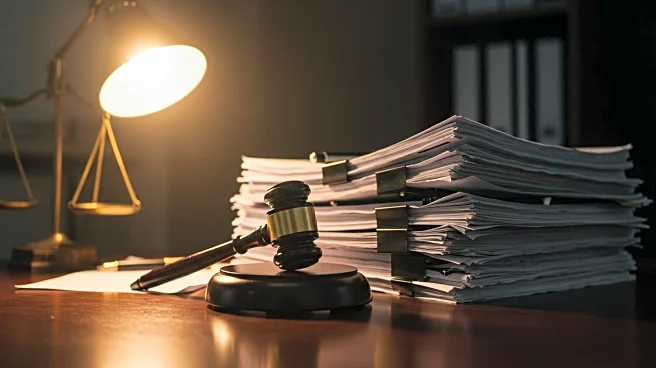What's Happening?
The U.S. Department of Justice is experiencing significant strain as it defends numerous lawsuits challenging President Trump's executive orders and policies. Since January, the department has faced over 450 court challenges, an unprecedented number for a new administration. This has led to mass departures within the department, particularly in the Federal Programs Branch, which is responsible for defending executive branch policies. More than half of the lawyers in this branch have left, citing overwhelming workloads and policy changes. The department has requested deadline extensions in court, acknowledging difficulties in managing the caseload due to staff shortages.
Why It's Important?
The strain on the DOJ has broader implications for the administration's ability to implement its policies effectively. The high turnover and workload challenges could impact the government's defense in critical cases, including those related to immigration and federal grants. This situation may weaken the administration's legal standing and ability to uphold its agenda, potentially affecting public policy and governance. The departures also highlight internal conflicts within the DOJ, as some lawyers have left due to ethical concerns over defending certain policies.
What's Next?
The DOJ is working to recruit more lawyers to handle the increasing caseload, but new hires may lack the experience needed to manage complex legal challenges. The department's ability to defend against lawsuits will be crucial in maintaining the administration's policy initiatives. Continued strain could lead to further resignations, impacting the DOJ's capacity to function effectively. The administration may need to address internal issues and provide additional resources to support its legal teams.
Beyond the Headlines
The situation within the DOJ raises ethical and legal questions about the pressures faced by government lawyers. The departures suggest a potential conflict between personal ethics and professional duties, as some attorneys have been asked to defend policies they believe are illegal or unethical. This could lead to long-term shifts in how government legal teams operate and the standards they uphold.









